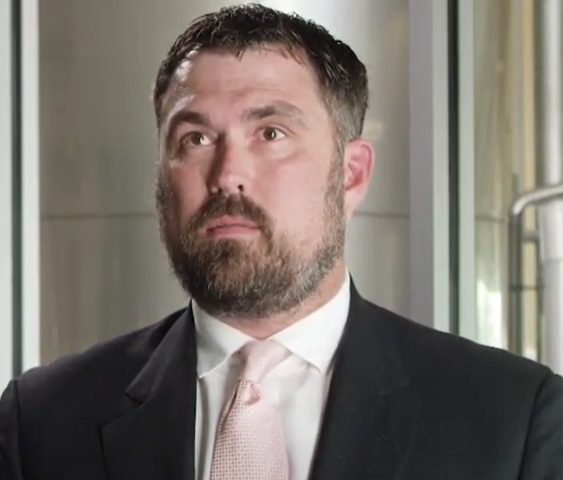Veteran Morgan Luttrell wasn't interested in focusing his studies on brain injuries, but he quickly became a resource for those who had questions. Soon he was helping others by sharing his experiences and connections. What are certain treatments like? How can I pay for them? The need became more than he could handle alone so he joined forces with the Boot Campaign.
Learn more about some of the treatments available for those recovering from brain injury and PTSD using our Treatment Hub.
Watch more videos from Morgan Luttrell.
When I retired, I wanted to be as far away from the military, from veterans, from people with problems, that I could be. My initial studies was in - multiple sclerosis or pediatrics. Traumatic brain injury - I didn’t want to have anything to do with it with veterans. I had enough problems on my own I thought, that I didn’t want to have to deal with somebody else’s. But I started getting calls from family members, from teammates, from friends of friends. And they were asking me, hey - you went to such and such place, how’d that work out for you? I was like, it was great. They were like, can you put me in contact? Sure. Well then there was like, well how do I pay for that? I’ve got a foundation that will help you pay for that. So I reached out to the hospital or the clinic, and I reached out to the foundation, and looped them in together and boom, off it went. It started out with the Boot Campaign, yes, ma’am. They were great. And I reached out to them. Lone Survivor Foundation, Infinite Hero. The list is long now. And that was kind of - it was a hobby at first just helping small numbers of folks. And it manifested itself in a way, and it grew so fast, I started - I needed help, I needed a stepping off point. That was where the Boot Campaign came in. Hey, we’ll take this for you. Because what I did is, I ended up taking every place that I went, and I put them in a systematic order - pre-diagnostic, neuro-psych testing, scans of the brain - you need a diagnostic package. All right, well first, let’s figure out what’s going on. Then, okay, let’s do the cognitive piece. It’s hard to do the physical fitness and exercise physiology and nutrition if I can’t talk to you. We’ve got to get you off the drugs. If you’re an alcoholic, if you’re a drug addict, we’ve got to get you off of those pain killers. Now, if you’re not sleeping, if you’re an insomniac, and if you’ve got post-traumatic stress, this is all a - one’s a catalyst for the other. So you have to focus - and this is all from here. It’s all up here. So, we took a hard look at the brain. Let’s do all these cognitive therapies we can, to get in here and get your cognitive instabilities under control. And then, boom, right to the physical fitness, exercise physiology piece and then track that. Was it a perfect system? No. I would have people come to me and they were like, my son, my daughter, my teammate, my buddy. I had one guy, he was like, hey, I’m not going to make it. I’m there. I was like, I can help you. Come see me. He killed himself after. There’s no perfect fix. Everyone is different. That’s what makes us so unique as a society, as a civilization. My brain is different than everybody else’s on the planet. Yours is too. Everyone is so - it’s a snowflake. So you can’t treat somebody the same. I can’t treat you like you’re - I can’t do a treatment protocol on you that you’re going to do on me - we’re different. No matter if you put our head in a vice, hit - and we took a direct hit with the same instrument in the same exact spot, you would be completely different with your problems than I would be, period. So I can’t treat the same way that I’ll be treated and we have to figure that out. That is that unsolvable algorithm, where’s that at? And that’s what we’re working for. And it’s - unfortunately, it will take time and we don't have time. When I say 22 suicides a day, that’s just the numbers that the VA reports. It’s probably closer to 35 a day and that’s not -- Police officers are even more than that, first responders. Nobody knows that, where’s that at? The problems are - the brain has been such a taboo science for so many decades. It’s the last banyan [phonetic] of discovery. We can give you a new heart, liver, lungs. That’s easy. Why isn’t anybody focusing on the brain, per se? They’re out there. It’s just science, technology need to come together - and they are. I mean, this is the decade of the brain. We’ll figure, we’ll crack this nut. I have all the faith in the world of our brilliant scientists and researchers. This video was produced by BrainLine thanks to generous support from the Infinite Hero Foundation.
This video was produced by BrainLine thanks to generous support from the Infinite Hero Foundation.
About the author: Morgan Luttrell
Morgan Luttrell is a Navy SEAL veteran. He sustained back injures including major damage to his spinal cord and suffered a traumatic brain injury in a helicopter crash during training. When he got out, he said he traveled the country trying to figure out how to “fix” his brain. He earned a master’s degree in applied cognition and neuroscience and a Ph.D. focusing his studies on helping veterans with PTSD and other traumatic brain injuries.

